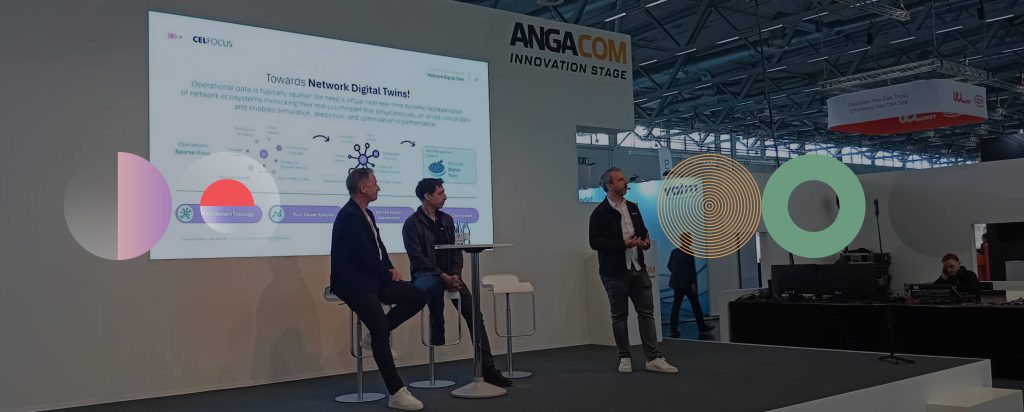Reflective Practice as a Catalyst for Process Innovation in Organizations

Understanding the Power of Reflective Practice
In today’s fast-paced business landscape, organizations face constant change and challenges. The need for innovation has never been greater, and this is where reflective practice steps in as a transformative approach. By encouraging individuals and teams to thoughtfully analyze their experiences, organizations can unlock significant potential.
What is Reflective Practice?
Reflective practice is more than a simple review of past actions; it is a systematic approach to continuous self-evaluation and critical thinking. This method challenges professionals to:
- Assess their methods and processes regularly, allowing for a clear understanding of what works and what doesn’t.
- Identify areas for improvement, leading to actionable insights that can enhance both individual and team performance.
- Incorporate feedback into their daily operations, fostering a culture where learning from mistakes is valued and encouraged.
The practice can take various forms, ranging from solitary journaling sessions to cooperative team discussions that stimulate dialogue. For instance, many educators in Nigeria engage in reflective practice by maintaining teaching journals, documenting lessons learned from each classroom experience, and adapting their approaches based on student feedback.
The Role of Reflective Practice in Process Innovation
When organizations embrace reflective practice, they cultivate an environment ripe for innovation. This approach yields several benefits, such as:
- Encouraging creativity and new ideas—through reflection, team members can conceptualize unconventional solutions to age-old problems.
- Enhancing problem-solving skills, ensuring teams are more adept at navigating complex challenges.
- Improving communication within teams, as reflective practice fosters an open dialogue that strengthens relationships among colleagues.
For instance, Nigerian companies adopting reflective practices may begin to transition from traditional problem-solving methods to innovative strategies that are better suited to local market needs. A notable case is that of a Lagos-based tech startup that regularly holds workshops for staff to discuss challenges faced in project implementation. By reflecting on these experiences, they developed a more agile framework, allowing for rapid adjustments and more tailored solutions for their clients.

Discovering the Link to Organizational Success
Exploring the connection between reflective practice and process innovation is essential for any organization aiming for sustainability. Reflective practice serves as a catalyst for learning, enabling organizations to adapt in an ever-evolving market. By asking critical questions—such as what worked in the past, what did not, and how can we do better—organizations can stay ahead of the curve.
This article will delve into the mechanisms through which reflective practice can inspire teams and individuals alike. Harnessing its power fosters a culture of continuous improvement and resilience, paving the way for growth and success in the competitive Nigerian business landscape.
CHECK OUT: Click here to explore more
The Mechanisms of Reflective Practice
Reflective practice acts as a gateway to process innovation by enhancing an organization’s capacity to learn and adapt. One of the most striking aspects of this approach is its ability to generate insights that feed directly into the innovation cycle. As organizations foster a climate of inquiry, they position themselves to grasp not only lessons from past successes but also those from failures. This duality is critical, particularly in the dynamic Nigerian market where businesses often encounter unique and unpredictable challenges.
Building a Reflective Culture
Creating a culture of reflection within an organization involves several pivotal elements:
- Leadership Buy-In: For reflective practice to thrive, leaders must champion the process, demonstrating through their actions the value of reflection. When senior management engages in reflective discussions, they set a precedent for the rest of the team to follow.
- Training and Development: Organizations need to equip team members with the tools necessary for effective reflection. Workshops or seminars focused on critical thinking and self-assessment can enhance skills that are vital for reflective practice.
- Integration into Daily Routines: Reflective practice should not be relegated to afterthoughts or quarterly reviews. Instead, integrating reflective moments into daily operations—such as brief team huddles or post-project debriefs—ensures that learning becomes a consistent part of the organizational fabric.
Let’s consider an example from a Nigerian manufacturing firm that experienced significant operational hurdles. By actively instilling reflective practices in their teams, such as regular feedback loops and strategy sessions focused on project evaluations, they were able to identify inefficiencies in their production process. This led to a re-engineering of their workflows, ultimately reducing costs and improving delivery times.
Stimulating Innovation Through Reflection
The correlation between reflection and innovation is evident when organizations utilize insights gained through reflective practices to drive change. Teams that engage in thoughtful reflection are more likely to:
- Design Innovative Solutions: By analyzing past experiences, employees can remove assumptions and preconceived notions, paving the way for creative problem-solving.
- Enhance Adaptability: Continuous reflection enables teams to pivot quickly in response to market changes, making them more agile and effective.
- Improve Stakeholder Relationships: Reflection encourages dialogue which can lead to better collaboration, not just internally among team members, but also externally with clients and partners.
For instance, in Nigeria’s burgeoning tech sector, startups that regularly engage in reflective workshops have managed to shift their approach to customer feedback. By embracing a reflective mindset, they not only adapt their products to meet local needs but also forge stronger relationships with their users, increasing customer loyalty and satisfaction.
Encouraging a Growth Mindset
Ultimately, the purpose of reflective practice extends beyond mere evaluation. It fosters a growth mindset, crucial for organizations aiming to innovate. When employees view challenges as opportunities for learning rather than obstacles, they become empowered to take risks and explore new ideas. This transformation is essential in Nigeria, where businesses can benefit immensely from embracing innovative strategies that reflect the complexities of the local market.
In the following sections, we will further explore how reflective practice can be embedded into organizational frameworks, ensuring that innovation becomes an integral aspect of operational strategy.
| Advantages | Description |
|---|---|
| Enhanced Learning | Reflective practice fosters a continuous feedback loop, allowing individuals to learn from both successes and failures, directly contributing to process innovation. |
| Team Collaboration | Encouraging reflective practices promotes a culture of openness, facilitating collaboration across teams, which is essential for generating innovative solutions. |
| Problem Solving | Reflective approaches help in identifying root causes of issues, paving the way to develop and implement innovative processes that solve those problems. |
| Organizational Agility | With consistent reflection, organizations can rapidly adapt to changes, enhancing their agility and remaining competitive in a dynamic market. |
Reflective practice acts as a linchpin in driving process innovation within organizations, where continual improvement is paramount. When employees engage in thoughtful evaluation of their work, they are not just troubleshooting; they are laying the groundwork for future enhancements. This intrinsic motivation, forged through reflective methods, can lead to groundbreaking ideas that redefine operations. By nurturing a culture of inquiry, organizations not only energize their workforce but also cultivate a fertile ground for innovative strategies. In this context, the impact of reflective practices transcends immediate problem-solving to influence long-term sustainability of innovation within competitive frameworks. Businesses that harness this potential find themselves able to pivot quickly, leveraging insights derived from collective reflection, thereby establishing a robust framework resilient to disruptions.
SEE ALSO: Click here to read another article
Embedding Reflective Practice into Organizational Frameworks
For reflective practice to truly ignite process innovation, it must be deeply embedded into the organizational frameworks. This involves not only adopting a reflective culture but also strategically aligning it with an organization’s operational goals. The implementation of reflective frameworks can catalyze an iterative cycle of continuous improvement that keeps teams focused and adaptable in fast-evolving markets like Nigeria.
Establishing Feedback Mechanisms
A cornerstone of effective reflective practice is the establishment of robust feedback mechanisms. Organizations can create formal and informal channels for feedback that empower every level of staff to voice their thoughts and contributions. This feedback loop encourages insights that can pivot organizational strategies based on real-time data. For example, companies in Nigeria’s banking sector have begun utilizing customer-centric feedback to enhance their service delivery. By reflecting on client complaints and suggestions, banks have re-engineered processes to better meet customer needs, thereby fostering loyalty and profitability.
- Anonymous Surveys: Conducting anonymous surveys can instigate honest feedback from employees who might feel hesitant to voice concerns openly. This allows organizations to capture a broad array of insights which can shape future strategies.
- Regular Check-Ins: Quarterly or bi-annual reviews can serve as structured opportunities for reflection. These sessions should focus not just on performance metrics but also on examining the journey of achieving those results.
- Peer Review Sessions: Encouraging team members to challenge each other’s ideas in a constructive context stimulates critical thinking and diverse perspectives, ultimately leading to innovative solutions.
Leveraging Technology for Reflection
As technology becomes increasingly integrated into business processes, organizations can leverage digital tools to bolster their reflective practices. E-learning platforms, collaborative software, and project management tools can facilitate both individual and group reflections. For instance, engineers in Nigerian energy companies have turned to project management software that includes retrospective features, allowing them to analyze project execution and adapt strategies mid-course. This not only enhances productivity but also creates a learning environment where innovative ideas are generated without the fear of failure.
Moreover, the rise of artificial intelligence and data analytics offers organizations the opportunity to use data-driven insights for reflective practice. By analyzing operational data, companies can identify patterns, bottlenecks, and areas ripe for innovation. For example, logistics companies in Nigeria have begun utilizing data analytics to monitor supply chain efficiencies. Through reflective practice, they can swiftly adapt delivery strategies based on insights gathered from tracking information, thereby enhancing customer satisfaction.
Measuring Success: Key Performance Indicators
To ensure that reflective practices yield tangible outcomes, organizations must develop clear key performance indicators (KPIs) that align with innovative goals. These assessments create accountability among teams and channel efforts toward desired outcomes. Common KPIs linked to reflective practices may include:
- Time to Market: Measuring how quickly new ideas are transformed into viable products or services can reflect the agility fostered by reflective practices.
- Employee Engagement Scores: An increase in employee engagement levels can signify a successful implementation of reflective practices, directly correlated to innovation and creativity.
- Customer Satisfaction Metrics: Positive trends in customer feedback and satisfaction can highlight the effectiveness of initiatives informed by thoughtful reflection.
As organizations in Nigeria begin to recognize the profound impact of reflective practice on driving process innovation, the focus will shift from merely surviving in a competitive market to thriving as agile and innovative players. The journey involves consistent engagement, robust feedback mechanisms, and leveraging technology, all woven seamlessly into the very fabric of organizational operations.
CHECK OUT: Click here to explore more
Conclusion: A Pathway to Innovation through Reflective Practice
In an era defined by rapid change and heightened competition, reflective practice emerges as a critical catalyst for driving process innovation within organizations. By embedding reflective frameworks, businesses not only enhance their operational efficacy but also foster a culture that values continuous learning and adaptation. The ability to harness feedback through structured mechanisms empowers employees at all levels, creating a feedback-rich environment where innovative ideas can flourish.
The successful integration of technology further amplifies the impact of reflective practice. Organizations that leverage digital tools for analysis and learning can significantly identify inefficiencies and streamline processes, thereby positioning themselves ahead of their competitors. For instance, companies across Nigeria are already harnessing data analytics to inform their decisions and refine their offerings, showcasing the potential of reflective practices when aligned with technology.
Moreover, establishing clear key performance indicators (KPIs) linked to reflective practices ensures that organizations can tangibly measure their growth and innovation outcomes. By focusing on metrics such as time-to-market, employee engagement, and customer satisfaction, organizations can bridge the gap between contemplation and action, ensuring that reflective practices yield real results.
Ultimately, the journey toward innovation through reflective practice requires persistent commitment and cultural alignment. As Nigerian organizations embrace this approach, they can transition from mere survival in a competitive landscape to thriving through enhanced agility and creativity. The framework for future success lies in the continuous integration of reflection into every facet of organizational life, setting the stage for groundbreaking processes and ideas that will lead the market forward.


